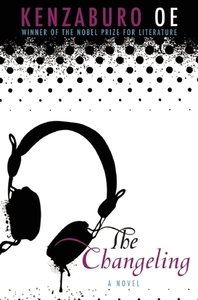Take a photo of a barcode or cover
The story of a lifelong friendship of two artists - one a novelist, the other a filmmaker - this novel builds incrementally and sweeps you up until you know and care for these characters tremendously.
Rating: 2.5 stars
I need to process this story before I write what I think about it. The descriptive word that comes to my mind is nebulous.
I need to process this story before I write what I think about it. The descriptive word that comes to my mind is nebulous.
The concept of this book is interesting, but I couldn’t get behind the characters or the plot. I was almost 200 pages in and felt like I had only read enough info for 30 pages. I kept wanting to nap while reading.
A slow, reflective, and often meandering but consistently beautiful read. A lot of the plot elements are apparently autobiographical, and Oe mixes fact with fiction to deliver a wistful tale of a man in his sixties looking back at his life in the wake of his best friend's suicide, replete with his musings on art, politics, individualism, and sexuality.
A highly intertextual book, Oe takes us through, among others and off the top of my head, the works of Arthur Rimbaud, Frida Kahlo, Mozart, and even Maurice Sendak to make his point. He then goes further and assigns authorship of his own past works to Kogito, the protagonist, and references them frequently. The result is an honest, emotionally complex, very resonant work infused with a heavy dose of that sublime sadness the Japanese seem to be so good at conveying.
I could find a point or two to quibble about regarding the translation, but while the awkward bits were noticeable, they did not detract from my enjoyment of the book, so I'll let them pass.
And I have to mention that the hardcover design is simply gorgeous, with all the yellowed leaves on the translucent dust jacket that line up perfectly over the barren trees on the cardboard inside. That's definitely the edition to buy if you intend to keep it.
A highly intertextual book, Oe takes us through, among others and off the top of my head, the works of Arthur Rimbaud, Frida Kahlo, Mozart, and even Maurice Sendak to make his point. He then goes further and assigns authorship of his own past works to Kogito, the protagonist, and references them frequently. The result is an honest, emotionally complex, very resonant work infused with a heavy dose of that sublime sadness the Japanese seem to be so good at conveying.
I could find a point or two to quibble about regarding the translation, but while the awkward bits were noticeable, they did not detract from my enjoyment of the book, so I'll let them pass.
And I have to mention that the hardcover design is simply gorgeous, with all the yellowed leaves on the translucent dust jacket that line up perfectly over the barren trees on the cardboard inside. That's definitely the edition to buy if you intend to keep it.
A meandering look at the relationships we have with our loved ones both while they are with us as well as when all that remains are the memories due to their passing. I loved the simple nature of the story and the fact that even when dealing with sort of metaphysical topics the characters remained wholly grounded and would not introduce any fantastical elements.
The pacing is slow and we learn about the world and the characters not through direct exposition but through their interactions with Kogito.
I guess the only aspect I felt frustrated with was the big "action sequence" that the book is leading up to. Kogito frequently muses on an infamous night that he and Goro spent in the mountains, yetit is then revealed that Kogito has no idea what really happened and the options that are exposed (a willing homosexual encounter or observing a drunken beating of an officer) do not seem to justify the supposed trauma. Perhaps there is a social aspect specific to the time and place that I am not sensing.
The pacing is slow and we learn about the world and the characters not through direct exposition but through their interactions with Kogito.
I guess the only aspect I felt frustrated with was the big "action sequence" that the book is leading up to. Kogito frequently muses on an infamous night that he and Goro spent in the mountains, yet


